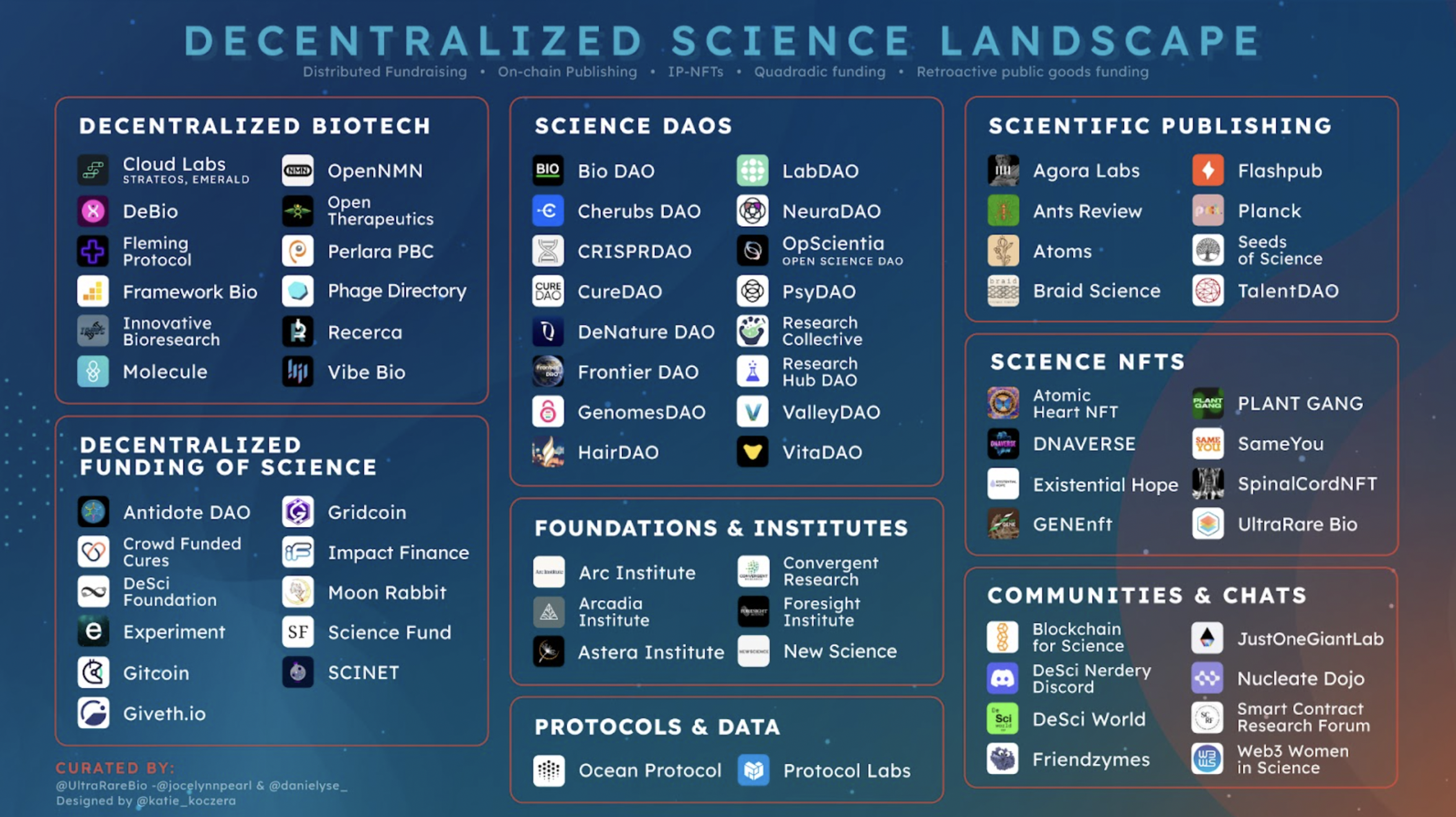How NFTs, Web3 And The Metaverse Are Transforming Research
Using decentralized platforms could revolutionize the production and dissemination of scientific publications. The current system is outdated, relies on publisher cartels and has resulted in poor reproducibility of published data and papers. The consequences are not only loss of public credibility but also decreased public funding.

What Decentralization of Science Looks Like
The decentralization of science is a paradigm shift in funding, sharing, and monetizing science. Currently, scientists spend most of their time competing for increasingly inadequate funds. Unfortunately, a substantial amount of those funds go to the most famous researchers. Furthermore, the hypercompetitive nature of academia saps individual creativity and contributes to systemic biases that drive many scientists out of the field. DeSci offers an alternative to current science and supports decentralization over centralized control.
Creating a decentralized science organization will create more transparency and reduce redundancy-two key challenges of the scientific community today. For example, decentralized communities would enable peer review of scientific papers and award tokens to reviewers.
A major problem with the current model of centralized science is the inability of participants to determine the course of the research. It is also obsolete and unable to take in decentralization at scale. Instead, scientists can choose to design a decentralized system in which they have greater influence over the final product than the people who will use it.
Blockchain Technology for Science
Scientists can use the power of blockchain tools, such as smart contracts and tokens, to boost collaboration and communication in scientific endeavors. A decentralized science technology, known as DeSci, is a mashup of blockchain and Web3 technologies. The technology's decentralized nature can facilitate research and make scientific research easier and more accessible to the public. The future of science is here, and blockchain technology has the power to make it happen.
Clinical trials are a perfect fit for blockchain technology since they allow immutability, traceability, and varying access levels. Using blockchain in clinical trials can also facilitate the collection and management of patient consent, track patient samples, maintain trial protocols, and ensure there is secure communication between trial sites. IBM signed an initiative in 2019 to manage clinical trials in Canada. Furthermore, Triall is developing an application that integrates blockchain with clinical trial protocols. This technology is gaining acceptance in the scientific community.
The role of NFTs in Science
A DAO is a blockchain-based organization that allows scientists to sell their tokens to outside individuals. The token owners decide the future of scientific research and own the intellectual property generated from their work. Scientists submit proposals to VitaDAOs to conduct research. DAO members evaluate these proposals to determine whether the proposed research is methodologically sound. Creating a DAO devoted to one subject and selling it to multiple users is possible.
Many internet blogs have debated the role of NFTs in science and research. There are some concerns, however. First of all, NFTs can't replace original manuscripts. Therefore, digital copies of scientific papers will be useless without an original manuscript. Second, NFTs may not be a perfect medium for research. However, digital manuscripts can serve as a commemorative artifact of patent disclosure. For instance, the original manuscripts of scientific papers are sometimes very valuable. Some famous scientists have even paid millions of dollars to acquire the manuscripts of these famous scientists.

